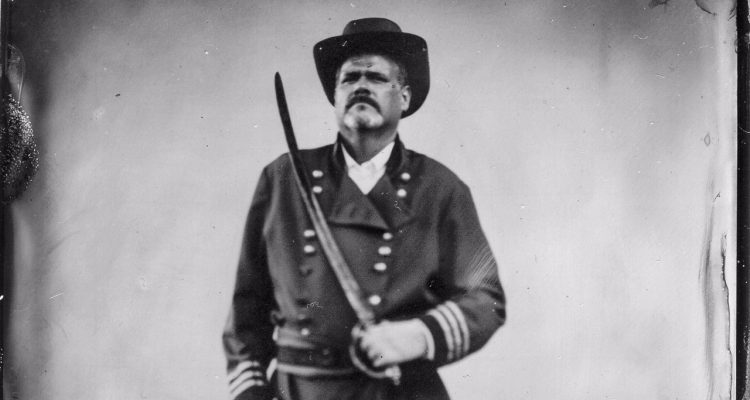He’s soft-spoken, he’s humble, and he never accepts any credit for his accomplishments, but Sean Duffy has indeed had a hand in both the increase in popularity of the Ohio County Library and the interest in local Wheeling history.
Lunch with Books. Archiving Wheeling. The “It’s Wheeling History” Trivia Contest. Just to toss on the table a few items.
“I really believe Sean is the unsung hero of Wheeling history because he is constantly working behind the scenes to bring Wheeling’s history to the forefront,” said Rebekah Karelis, historian with the Wheeling National Heritage Corp. “He’ll never admit it because he’s very, very humble, but he has worked very hard to make our history more accessible to the public.”
That’s right, she said that. She said this, too.
“When I have a question while I am conducting research, Sean is always one of my first calls because of how well-rounded his knowledge is of this area,” she continued. “We are lucky to have a lot of dedicated historians here in Wheeling, but their areas of research are usually focused in on one or two areas. But Sean has gathered information from so many areas that I can usually count on him for something new I did not know.”
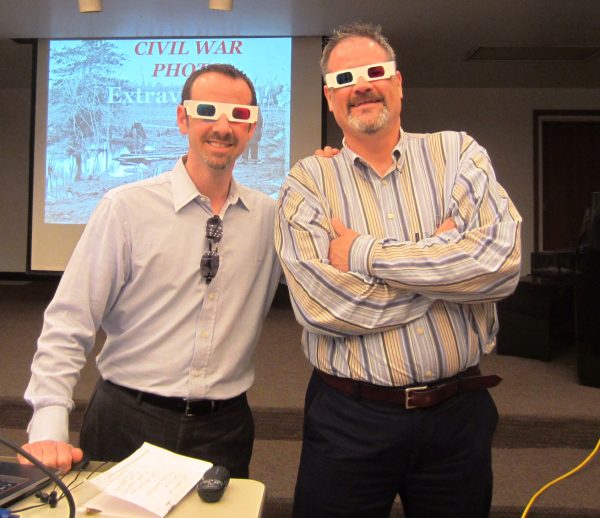
Duffy is 49 (50 in March), and he graduated from Corpus Christi before receiving his diploma in 1984 from Wheeling Central Catholic High School. Immediately he believed he wanted to become a marine biologist, but his mind soon changed and his path back to Wheeling traveled many unexpected swerves.
“I have always loved history, but I went to Wheeling Jesuit believing I was going to be a biology major, but while I was there I discovered that the history professors had the best parties,” Duffy said with a smile. “And they were also always the smartest guys in the room. I learned a lot from them.
“They all encouraged me to continue my education in history, but I decided I wanted to go to law school instead, so I went to American University in Washington, D.C., and got my law degree,” he continued. “But then I figured out that I wasn’t going to practice law after an experience as a summer intern, but I definitely wanted to finish the degree. And then, I found myself asking that question: ‘What do you do next?’”
Duffy was determined to reside in Pittsburgh and passed the Pennsylvania Bar Exam, but his efforts to gain employment in the legal field in Allegheny County proved fruitless.
“At the time I graduated from American, there weren’t a lot of jobs out there because it was a flooded market back in 1991,” Duffy said. “I believe that was the year this country had its largest class of lawyers graduating, and there just weren’t enough positions for everyone.
“I did try to find a position, but nothing that was available seemed like a good fit, so that’s when I decided to go into a different direction,” he recalled. “And that’s when I came back to Wheeling.”
And he returned to Wheeling Jesuit to earn his master’s in business administration and then accepted teaching positions at Jesuit, West Virginia Business College, and Robert Morris University. But this is when Duffy was reintroduced to his love for American history.
“I was the coordinator of a department that created educational materials, and my responsibility was to make sure everything we wanted to use was in compliance with the law, and I also had to make sure that we gained permission to use various photographs for the educational products we were developing,” Duffy explained. “The big project we worked on was one on the U.S. Constitution history that was called, ‘The Foundations of Freedom.’ That was a lot of fun until the federal funding dried up, and I was the victim of the ‘downsize,’ but that’s when my current position here at the library was available.”
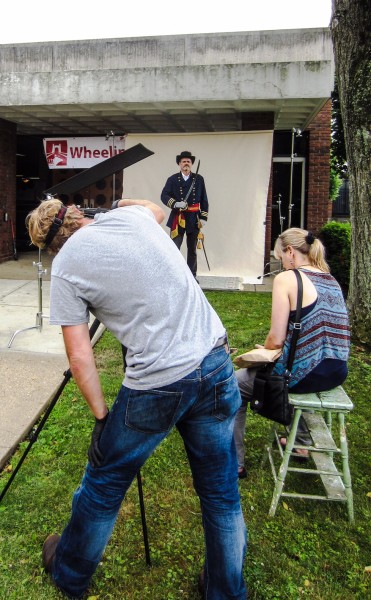
He’s Not a Librarian.
Hired in 2006 as the adult program director by the Ohio County Library, Duffy inherited the Lunch with Books program and the goal of attracting more visitors to the facility on 16th Street in downtown Wheeling. Since then, a couple of other objectives – publicity and archives – have been added to his job description.
“When I first started, the Lunch with Books program had been started, and it was held twice per month,” Duffy recalled. “It was a program that the friends of the library had started back in the 1970s, and it had always been sort of low-key and small, but I decided to kick it up a notch and to do it once per week instead.
“I wanted to make it bigger with a variety of different guests so we could attract more people to the library so they could discover everything that we have here,” he said. “The goals of library programming are to bring in as many new people as we can, and to offer learning experiences for those who do visit.”
Duffy’s plan worked. It is not unusual to see more than 100 local residents gathered in the events room on Tuesdays at noon to enjoy presentations from local, regional, and even national speakers.
“That’s when people started coming to me because they wanted to speak here because of the attention the program was gaining from the media and local residents,” Duffy said. “And then our director came up with the ‘People’s University’ concept that is similar to taking a college course for a semester, and that has really taken off, too.
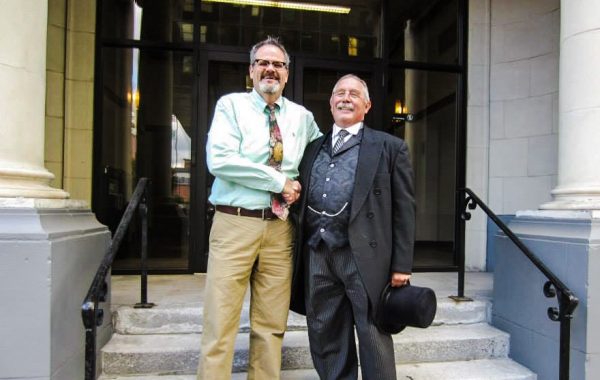
“I decided that if I was going to be a program coordinator for a library, it was going to be the best library program in the state, and I think it is, and other people have told me that it is, too,” he said.
“Lunch with Books,” Karelis said, “is not one of those run-of-the-mill events, and that’s because of how dedicated Sean is in his position at the Ohio County Library. He has brought that program to a new level, that’s for sure. More than 100 people at lunch time on a Tuesday? That doesn’t happen, but it does for Lunch with Books.
“And I had so much fun working with Sean for the ‘It’s Wheeling History’ contest, and it went very, very well,” she said. “It was a lot of work, but it was worth it because we had the history thanks to the Carney family, and it was something we had wanted to do for a while.”
The trivia challenge included three rounds at three different locations, including the library, West Virginia Independence Hall, and the Blue Church in East Wheeling. Each team was permitted to have three or four members, and the 12 teams faced off for 20 minutes during six rounds of questions in the first round.
“The contest was primarily the idea of Rebekah Karelis because Bill Carney had donated these notebooks full of the trivia questions that we used for the trivia contest the first year, and if you know the people here who are very interested in the local history, then you know they are very passionate about it,” Duffy said. “So we believed that it was fertile ground for a contest, and it went very well, even better than we thought it would.
“And we’re going to do it again because it was a lot of fun for us, the people who participated, and for the people who attended the three rounds,” he said. “And there’s so much more out there. We’ll never run out of trivia questions; that’s for sure.”
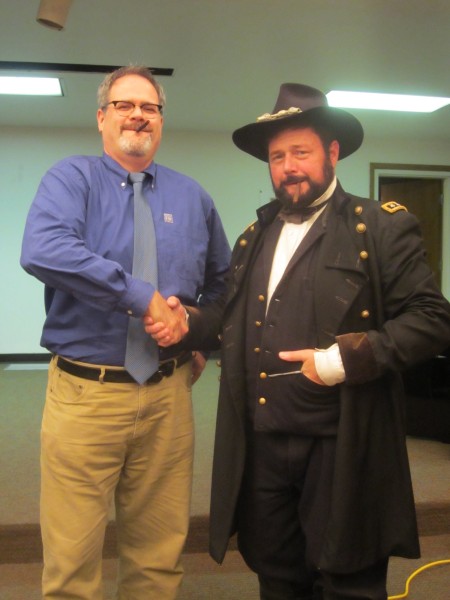
It’s Wheeling; That’s Why,
From 1971 until the end of the decade, the Pittsburgh Pirates won six division titles and a pair of World Series titles and the Pittsburgh Steelers captured four Super Bowls, and guess who was a rabid fan of both teams?
“I grew up at a great time for Pittsburgh sports because of the success the Pirates and the Steelers had in the 1970s. It was the Camelot, the golden age,” Duffy said. “Joe Green, Terry Bradshaw, Franco Harris, Willie Stargell, Dave Parker … I could go on and on, but that was a lot of fun and why I am still a big fan today.
“That was a great time for anyone who was interested in Pittsburgh sports,” he continued. “As far as playing sports, I played football and was a lineman for Corpus Christi and Wheeling Central, and did OK back then. As far as baseball, I was not a player, but I was definitely a fan of the game. I tried to play when I was a kid, but I figured out it wasn’t the game for me.”
Duffy knows the history of those professional sports franchises just as well as he knows Wheeling’s story from beginning to end based on what is known today. He’s a realist, too, because he readily realizes more and more mysteries await him and fellow researchers.
“We happen to live in a place that has a very interesting history, and not every place can say that,” Duffy said. “And we do have a lot of good people who want to be involved with it. They are all very passionate about it, and they love peeling back those layers to find new information that sends them off into a completely new direction with their research.
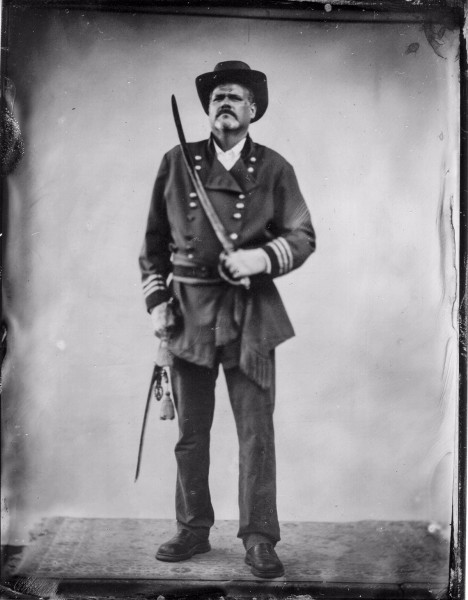
“Every time you peel a layer while researching, there’s something new; a new piece of history that was either not known, or it was forgotten, and I have always found that to be very interesting,” Duffy said. “Wheeling was a wide open town, and there are a lot of secrets that have been buried for many years. Some have been buried because they were forgotten, but other secrets were buried on purpose.
“One of my favorite things about researching history is making the connections that were not made before. It’s like solving a mystery sometimes. It’s sort of like researching cold-case files. That’s the fun of it. It can be an adventure, and you know it’s there but you just have to find it.”
The story of Wheeling dates back before the Revolutionary War era, and the city has long been the center of commerce and professional services for the Upper Ohio Valley. The storyline of the downtown district’s rise and fall and recent resurgence has been a popular topic here on Weelunk but only because of what has taken place since the National Pike guided the wagons to the development of the West.
It’s the buried history, though, that most intrigues Duffy.
“An example of what’s been buried on purpose is the organized crime history that we do have in this area,” Duffy said. “As we were reminded by The Wheeling Mob series in Weelunk, people knew it was going on, but they weren’t too concerned about it. They looked the other way. It was part of life.
“I played spot sheets. Everyone my age did, and not one of us considered it a big deal at all,” he continued. “It wasn’t considered a big deal, but maybe in another part of the country it would have been. But that’s a statement about the city that Wheeling has been through its history. It’s been a transportation hub, and they had a lot of migrants coming through like the wagon people, the train people, the steamboat people. It was a tough time, and there were a lot of rough people.
“They came here to get beer and cigars and other tobacco products, and other things that men needed when they were on the road. So that’s what flavored Wheeling and characterized what we were and set our standards morally. It’s either fortunate or unfortunate; that depends on how you want to look at it.”
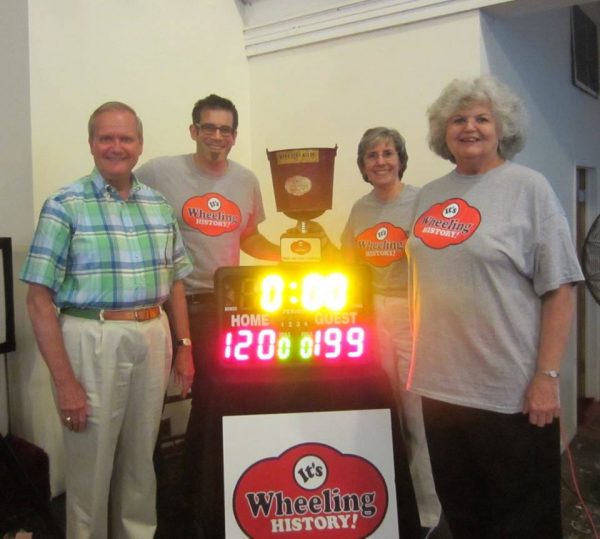
Questions Have Answers.
It is far easier to “look at it” these days and that’s thanks to Archiving Wheeling, a relatively new web site that has unified significant historical archives maintained by the Ohio County Library, the Diocese of Wheeling-Charleston, and the Wheeling National Heritage Area Corp.
“One day Erin Rothenbuehler and I were discussing the fact that we had this archive that very few people knew about because the visibility of the collection wasn’t there,” Duffy said. “The whole point of an archive is for people to come in here and use it for research, so we wanted to find a new way to raise the awareness and have a presence online.
“We were also aware that there were other archives here in Wheeling that were not well known, and we thought we could bridge that gap by connecting them online. It’s now a community archive that can be discovered by anyone online,” Duffy continued. “It’s now a way for these archives to be more accessible so more and more research can be done and these stories can get out there to the public.”
And what is now all about Wheeling, Duffy hopes to lend a hand with the development of statewide archive access.
“We have discussed taking Archiving Wheeling to regional and state levels in the future,” Duffy reported. “We would like to connect the other collections from public libraries and historical societies, and part of that will be helping some of the smaller libraries with their collections so the material has somewhere to go and can be far more visible than what it is today.
“Far too often important pieces of state history gets sold on Ebay, or it gets pitched, so we want to do this so we can preserve those pieces, and it’s possible to do,” he insisted. “Archiving West Virginia. That’s what we are hoping to accomplish next, and we’ve already introduced the project to several libraries in the state.”
So will he admit it? He should, right? That revelation about the existence of an amusement park he and Kate Quinn contributed to Weelunk in September 2014, which can be read here, proved wildly popular with readers.
But will Sean Duffy take a little credit? Will he finally concede that his efforts have led to more public interest in the history of Wheeling and the Upper Ohio Valley?
It’s always a “we” thing with this guy.
“Because of the collective efforts that have been made by the folks who are very interested in local history, I do believe there are more people now involved with the research,” Duffy said. “The fact that the ‘Memories of Wheeling’ Facebook page is so popular tells you that the interest is not just here, but it’s all over the country. It may be more nostalgia that’s discussed on that page, but it’s obvious to me that people are very interested in Wheeling because that page is wildly popular.
“I do post a lot of the stories that we feature on Archiving Wheeling that are very historical in nature, and those posts have gained a lot attention because of that high level of interest,” he continued. “I think those collective efforts have allowed a lot more people to see just how fascinating it is.”
(Photos provided by Sean Duffy)


